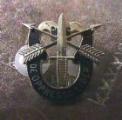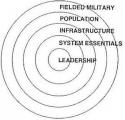These regimes were, for the most part, never able to maintain an information monopoly--they've always been acutely vulnerable to transnational ideological appeals, in part because most of the population shares a common (Arabic) language. In the 1950s and 1960s this took the form of radio (think of Nasser's highly subversive Sawt al-Arab radio broadcasts), as well as a whole host of transnational political organizations (the Muslim Brotherhood, the Ba'th, the Arab Nationalist Movement, etc). These movements, moreover, were far more successful at seizing power (Syria, Iraq, South Yemen, and very nearly in Jordan and Lebanon too) than AQ has been. AQ may be able to conduct mass terror attacks, but as a regime threat it has been (outside Iraq) small potatoes.
Today, as you note, the media environment is even freer due to direct broadcast satellite TV (since the late 1990s). Yet most regimes appear more secure than they did before 1970, and the pace of political reform has stalled in all but a few. Indeed, the apparent lack of any substantial "al-Jazeera" effect on the pressure for democratization in the region has become an increasing issue of interest for scholars of the media and politics in the region.













Bookmarks